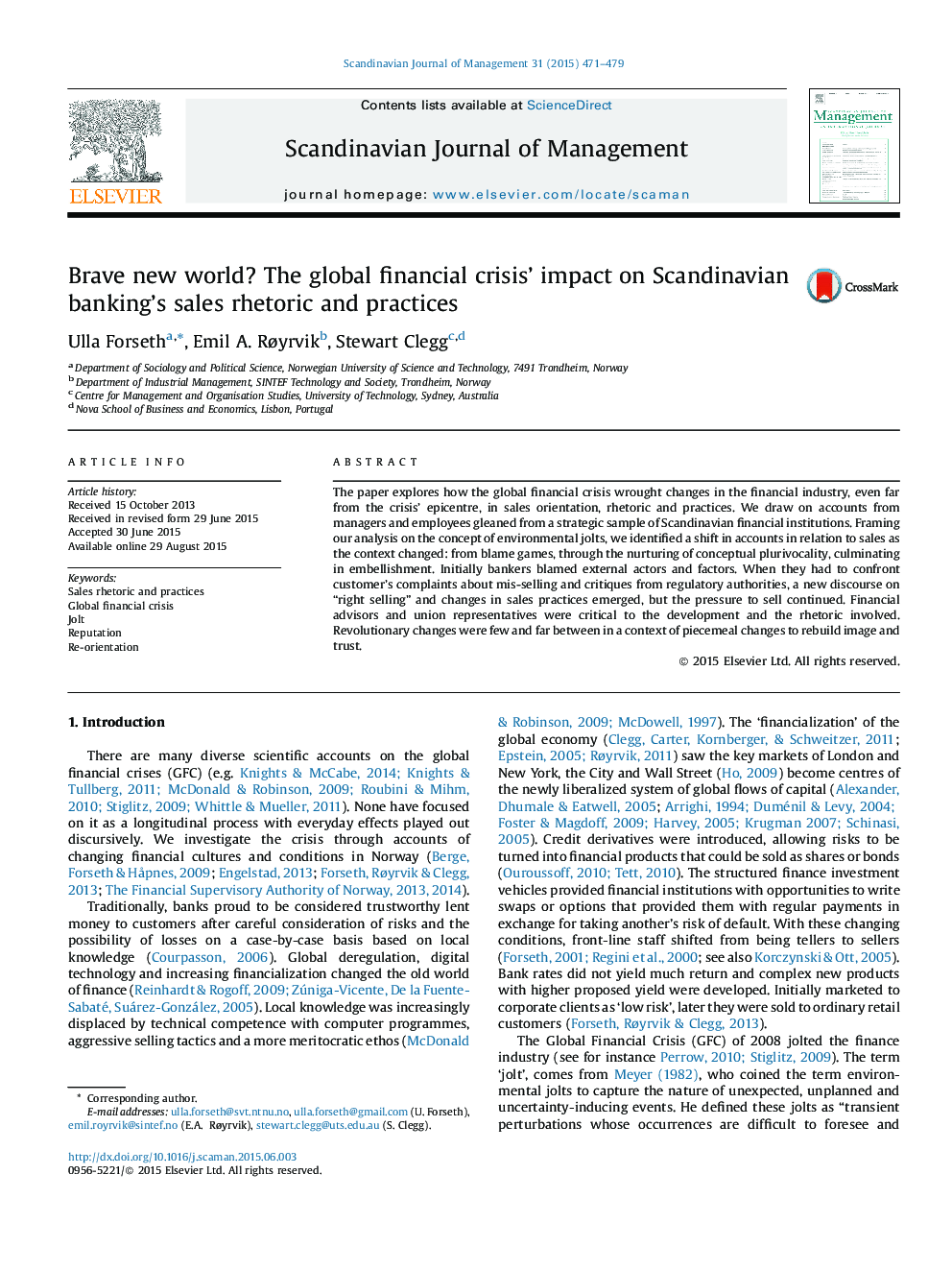| Article ID | Journal | Published Year | Pages | File Type |
|---|---|---|---|---|
| 895765 | Scandinavian Journal of Management | 2015 | 9 Pages |
•The financial crisis jolting the global economy.•Lack of trust and tarnished image in financial institutions far from the epicentre of the jolt.•Earlier accounts of “environmental jolts” treated them as occasion for overall change by organizations, we have investigated everyday practices unfolding over time, far removed from moments of strategy formulation.•An explorative, ethnographic and longitudinal study to analyse sales rhetoric and practices before and after the global financial crisis among different stakeholders in Scandinavian financial institutions.•Sales trajectories: from cultivation of sales orientation, overselling and mis-selling to a shift to “right selling”, translating into enhanced surveillance and disciplinary control of employees.•Compiling the accounts of our informants resulted in a complex and sometimes contradictory picture and it was difficult to distinguish between actual changes and rhetoric about the changes.•Revolutionary changes were few and far between in a context of piecemeal changes and modest regulation.•Theoretical contribution: how jolts that threatened local legitimations of management practice became occasion for creative sensemaking that rationalized failure, apportioned responsibility and maintained legitimation, whilst simultaneously deepening existing disciplinary measures under cover of a new rhetoric of the customer.
The paper explores how the global financial crisis wrought changes in the financial industry, even far from the crisis’ epicentre, in sales orientation, rhetoric and practices. We draw on accounts from managers and employees gleaned from a strategic sample of Scandinavian financial institutions. Framing our analysis on the concept of environmental jolts, we identified a shift in accounts in relation to sales as the context changed: from blame games, through the nurturing of conceptual plurivocality, culminating in embellishment. Initially bankers blamed external actors and factors. When they had to confront customer’s complaints about mis-selling and critiques from regulatory authorities, a new discourse on “right selling” and changes in sales practices emerged, but the pressure to sell continued. Financial advisors and union representatives were critical to the development and the rhetoric involved. Revolutionary changes were few and far between in a context of piecemeal changes to rebuild image and trust.
